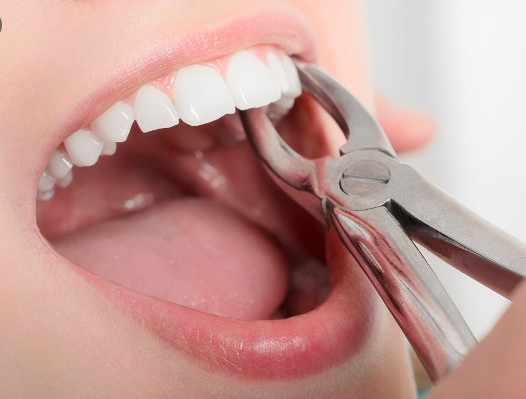Tooth Extractions Aftercare – How to Reduce Pain and Improve Recovery

Tooth extraction is a common dental procedure that can be performed to remove a tooth that is damaged or decayed. It has benefits and aftereffects at the same time.
While tooth extraction is generally a painless procedure, there can be discomfort and pain after removing the tooth. It is essential to follow proper aftercare instructions to reduce pain and improve recovery.
Want to know how to get rid of pain and boost the recovery for tooth extractions aftercare? Go through this blog and explore all the facts right away.
Things for Aftercare of Tooth Extraction
When having a tooth extraction, following the aftercare instructions provided by your dentist is essential. Failure to properly care for the extraction site can lead to complications, such as infection.
Pain relief
Pain relief is a top priority for many dental patients. Tooth extractions are no exception; aftercare is key to ensuring you get the most relief possible. Try these things:
- Take medications prescribed by the doctor and keep the area clean and dry.
- Apply ice packs to the area for fifteen minutes, several times a day.
- Take it easy! Resting is vital to allow your body to heal post-extraction properly.
Diet
If you’ve just had a tooth extraction, your diet will be important in your recovery. Here are things to consider about what to eat and what to avoid:
- Eat soft, chewable foods. It may include things like soup, mashed potatoes, and yogurt.
- Avoid crunchy or hard foods that could irritate the wound site. Do not eat nuts, chips, and popcorn.
- Drink lots of fluids, especially water. It will help keep your mouth clean and hydrated.
Oral hygiene
Oral hygiene is essential for overall health, especially if you’re scheduled for a tooth extraction. Proper oral hygiene will help reduce your risk of infection and speed up the healing process. You can tackle them with these tips:
- Brush your teeth gently with a soft-bristled toothbrush. Be careful not to brush the area where the tooth was extracted.
- Rinse your mouth with warm salt water several times daily to help keep the area clean and free of debris.
- Do not drink or smoke because it can slow healing.
- Follow up with your dentist as scheduled for follow-up care and to have any stitches removed.
Bleeding
It is common to have bleeding when you have a tooth extraction. But give a try these tricks to remove pain and stop bleeding.
- Use warm water several times a day to rinse your mouth.
- Gently suck on ice chips or a cold drink.
- Apply pressure to the tooth extracted area with a cold, damp cloth.
- Take ibuprofen as directed to help reduce swelling and pain.
- Keep away from smoking and spitting.
Swelling
Swelling is one of the most general side effects of tooth extractions. It is usually at its worst the day after the surgery but can last several days.
- Apply a cold compress to the outside of your mouth. You can use a cold pack, ice cubes in a baggie, or even a frozen treat like an ice pop.
- Take over-the-counter pain medication as directed. Ibuprofen (Advil, Motrin) or acetaminophen (Tylenol) are both excellent choices.
- Drink plenty of fluids. This will help flush bacteria and debris from the extraction site and keep you hydrated.
Recovery time
Some people may need to take a day or two off after tooth extraction. However, for the most part, people can return to their normal activities right away.
It is vital to follow the post-operative instructions provided by your dentist to ensure a quick and comfortable recovery. It will aid in getting faster recovery.
Conclusion
Following the above-mentioned simple tips for tooth extractions aftercare, you can get rid of pain and enjoy a quick recovery. Usually, tooth extractions are very painful, and when it comes to multiple tooth extractions, you have to be more careful than single teeth.
We have explained everything that can happen when you have this dental treatment. Try them out; they can help reduce pain and improve healing.
Taking care of yourself after a tooth extraction is an integral part of the healing process, so be sure to follow these tips and contact your dentist if you have any questions or concerns.
References:
1-Oral hygiene risk factor
Published: 24 April 2020
https://doi.org/10.1038/s41415-020-1545-3
2-Multiple tooth extractions triggering Behçet’s disease
Published: 18 September 2020
https://doi.org/10.1093/rheumatology/keaa479






